

As the MOBA genre expands and more companies are attempting to break into the industry, there’s even more need for innovation and a separation from the games that started it all. The most recent MOBA I’ve had the pleasure of trying out is TOME: Immortal Arena. I got my first hands-on experience at PAX Prime while discussing the game with Kixeye Creative Director Shawn Carnes. Having experience working with League of Legends and World of Warcraft, Carnes is definitely a veteran in the industry and has an idea on how to separate a game from the pack.
“Everyone’s starting to make different choices and redefine what a MOBA means. Some things that we like to think about are different ways to approach the MOBA genre. DOTA and League are great games, but they use a standard paradigm,” said Carnes.
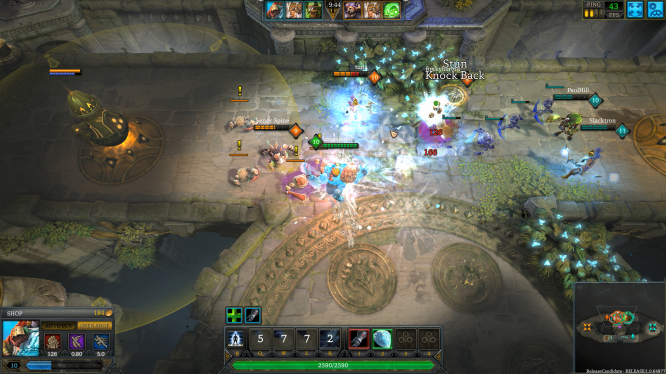
Landing a well placed stun can make or break a gank.
If DOTA 2 is an extra espresso, venti mocha Frappuccino then TOME: Immortal Arena is an Iced Skinny Latte. There’s nothing necessarily wrong with having less calories, but TOME is definitely a quicker, more simplistic MOBA with a focus on faster games and less complications. Instead of a multi-tiered, complex item system there are only three base items and one additional upgrade tier. On average games last about 12 minutes each, last hitting isn’t necessary, guardians heal in lane and items can be purchased anywhere on the map. The idea behind this is to keep players in the action as long as possible and to minimize unnecessary micromanaging.
Currently there’s only one map with two lanes and matches are played 3vs3. This setup generally allows for one solo lane, but roaming and ganking from the duo lane is essential to maintain map control. There are also plans to eventually add a 5vs5 and a 7vs7 map, but these scenarios are planned to be a deviation from the standard Summoner’s Rift style. It’s also likely that a third tier of items will be added to coincide with the introduction of these larger, more complex maps. This lack of items doesn’t necessarily make the game shallow because each item does a very specific thing, instead of having a ton of items with only slight deviations.
Combat in TOME is very typical MOBA with point and click to move or attack and four skills, including one ultimate type skill that unlocks at level 6. There are a few major differences though. First off, there are only four item slots. This isn’t a huge deal in 3vs3 matches because most games end by the time the final item is finished, but during the unusual extra-long matches there will likely be a lot of unspent gold; hopefully the number of items per character will be increased with the larger maps.
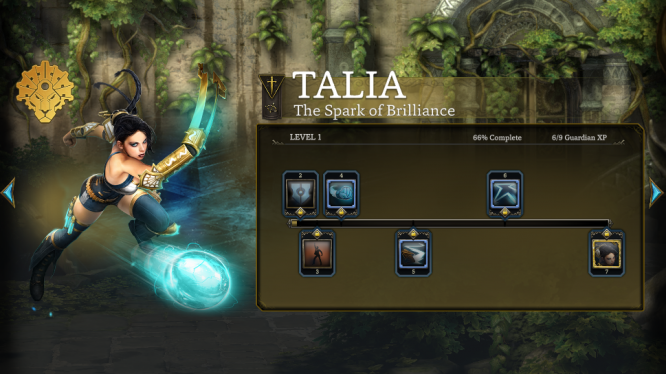
Relics provide guardian or skill specific upgrades.
Another difference is that skills level up automatically based on character level, instead of the player choosing. This lack of customization could bother a lot of veterans to the genre who like to maximize specific skills first, but it also eases the burden of new players trying to learn which skills to max in what particular order. The most significant difference, however, is the fact that towers have a limited supply of ammunition. When creeps or guardians push into an enemy tower it has to expend ammo to repel them and when it runs out it has to regenerate before it can shoot again. This creates additional strategies and allows teams to focus on pushing the minion waves instead of engaging enemy guardians directly. It also prevents the game from being delayed more than necessary.
“With limited ammo it gives us the opportunity to shorten matches. It’s relatively easy with unlimited mana to just basically turtle in a tower. Limited ammo makes any engagement at a tower have a serious consequence to it,” Carnes said.
Instead of using a complex rune system, TOME rewards players for leveling up individual guardians and the domains they belong to. Players can equip one relic, a guardian specific upgrades, and two blessings that provide a more general bonus. Each of the six domains provides three blessings and 1500 platinum on the last two levels. The first level up of every guardian grants 200 devotion, the second a special dance, then three relics and finally a unique skin. This system does make builds a bit more unique instead of just having straight stat upgrades.
While TOME does feature a payment model similar to many other MOBAs, it does have a few additional features. Platinum is the premium currency, which can be purchased for around 1500 for $10, and can be used to buy guardians, skins or boosts. This model is about on par with similar titles and most guardians can be purchased for 750-1350 platinum, and a 7-day Experience, Devotion, and Favor boost is 1500 platinum. There’s nothing that can be bought with premium currency that can’t be earned in game, and the time required to unlock guardians, relics and blessings isn’t terribly long.
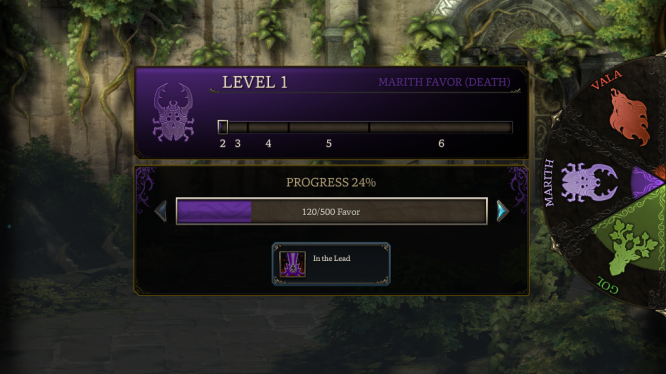
Taking time to completely upgrade a Domain rewards players with premium currency.
It’s estimated that unlocking the newer champions will require between 20-30 hours of gameplay, but this can be decreased based on win percentage. Additionally, TOME has recently released quests to help players obtain guardians and devotion. The tutorial unlocks a tank type guardian, Khar, and the first three quests unlock Orlon, Auberon, and Serafine, which rounds out to one of each class archetype; players who previously unlocked these characters will be rewarded with bonus devotion.
“At the end of the day we do need to make some money, but I really dig the approach that we only charge for convenience and customization,” said Carnes.
I’d have to agree with Carnes and there isn’t a necessity to dump tons of money into TOME to stay competitive. With the free guardians provided by weekly rotations and the others that are unlocked by quests there should always be one available character that most players will enjoy using. TOME might not be the most complex or diverse MOBA on the market right now, but it still has a lot of room to develop. It’s also a great game to break newcomers into the genre or for players who want to jump into a quick 10-15 minute match instead of devoting hours at a time.

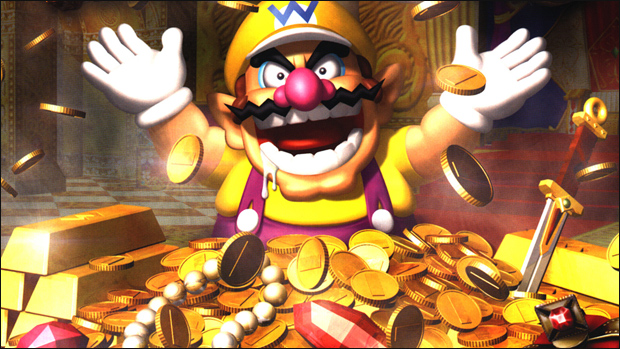
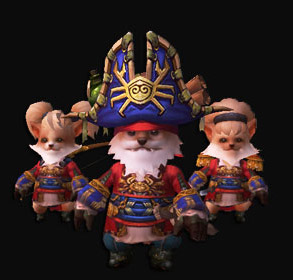
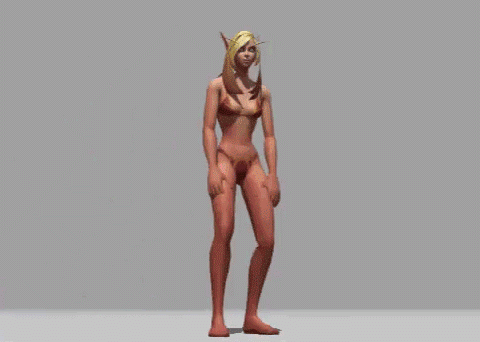
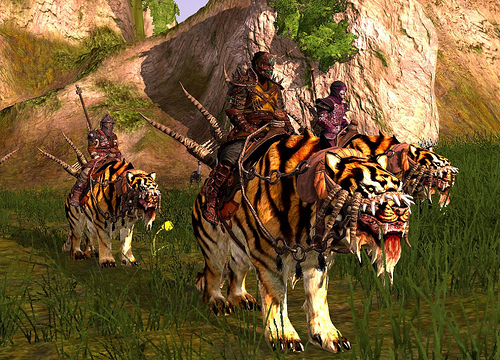 MMOHub's Guide to the Godslayer Part 3 .
MMOHub's Guide to the Godslayer Part 3 . Plants vs. Zombies 2: Level 28 in Big Wave Beach
Plants vs. Zombies 2: Level 28 in Big Wave Beach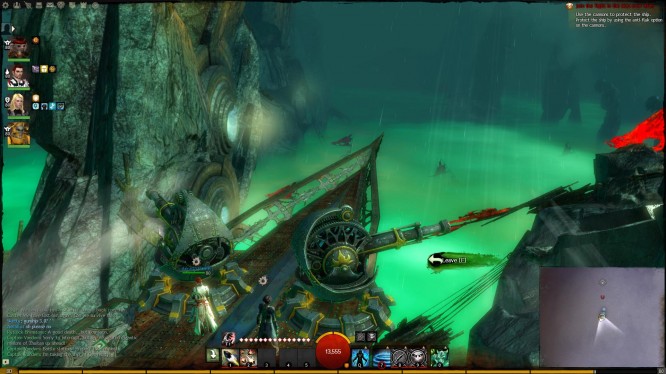 The Guild Wars 2 Dungeon Guide .
The Guild Wars 2 Dungeon Guide .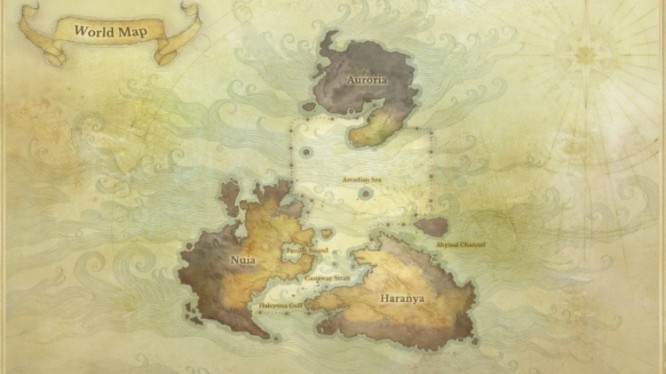 The Hasla Herald: Exploring Auroria .
The Hasla Herald: Exploring Auroria . Beta Data: April 3, 2015 .
Beta Data: April 3, 2015 .